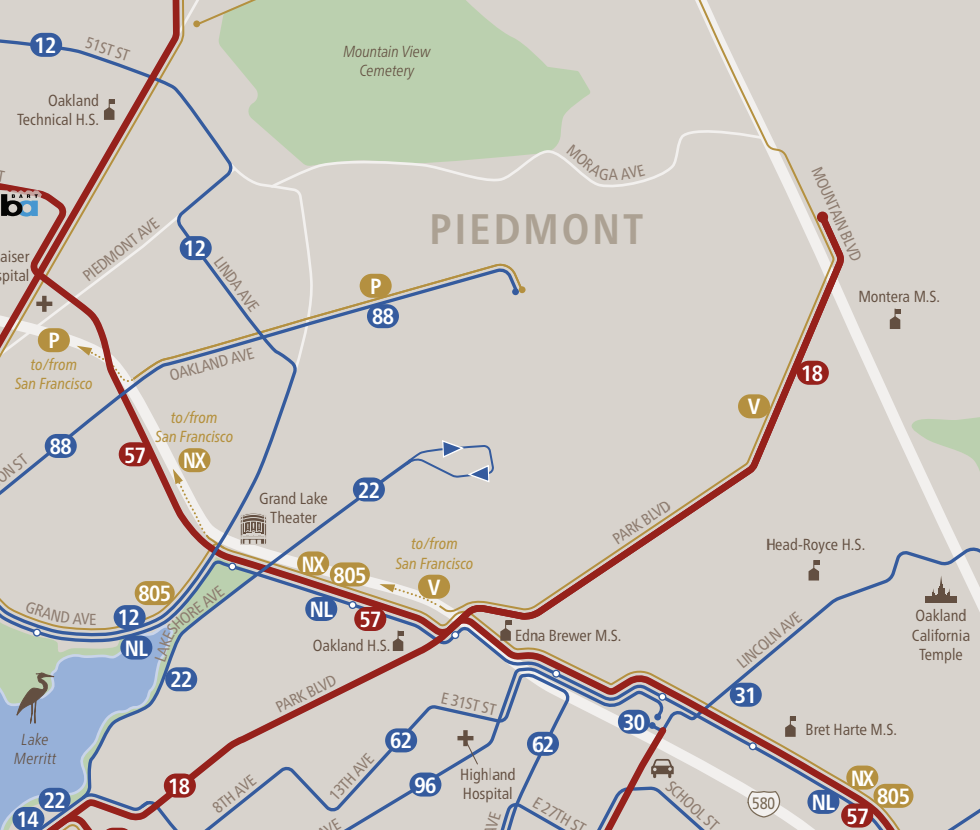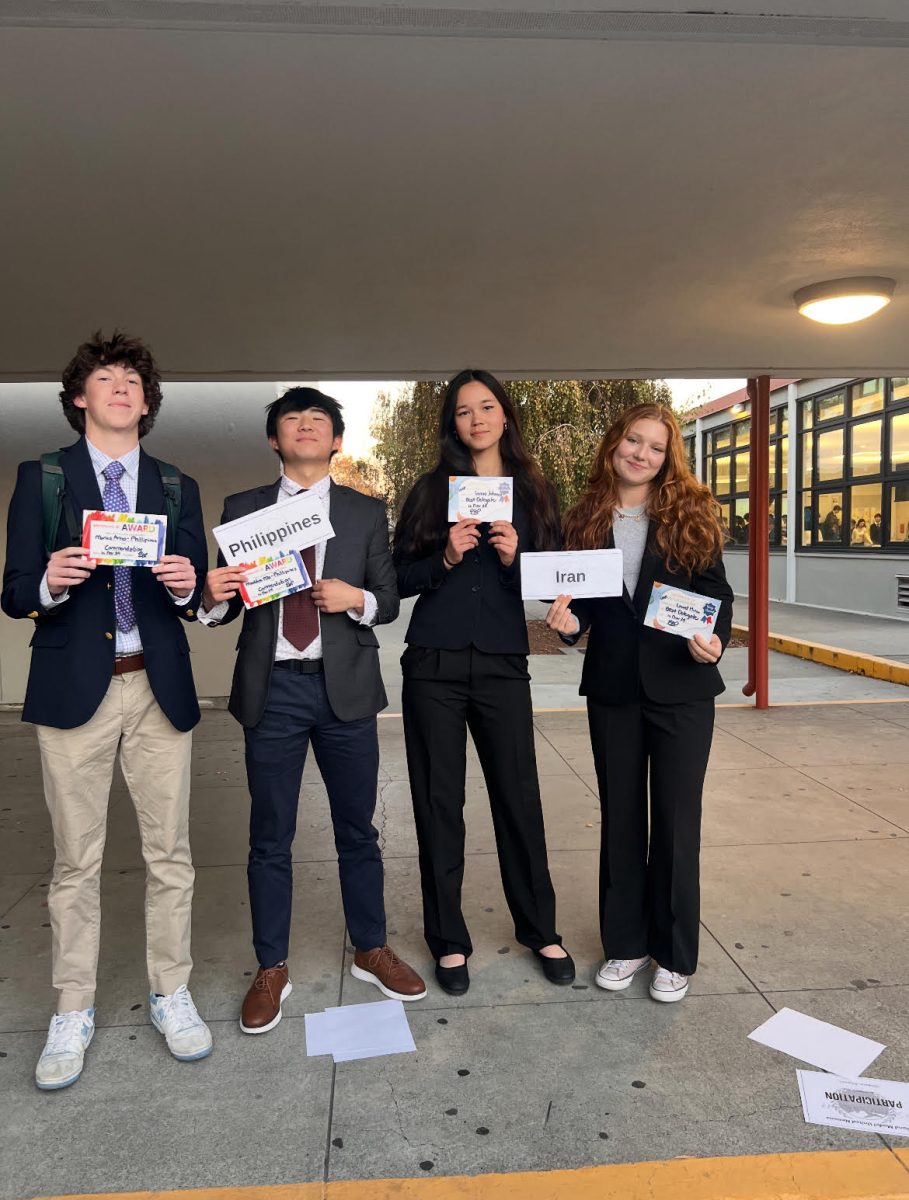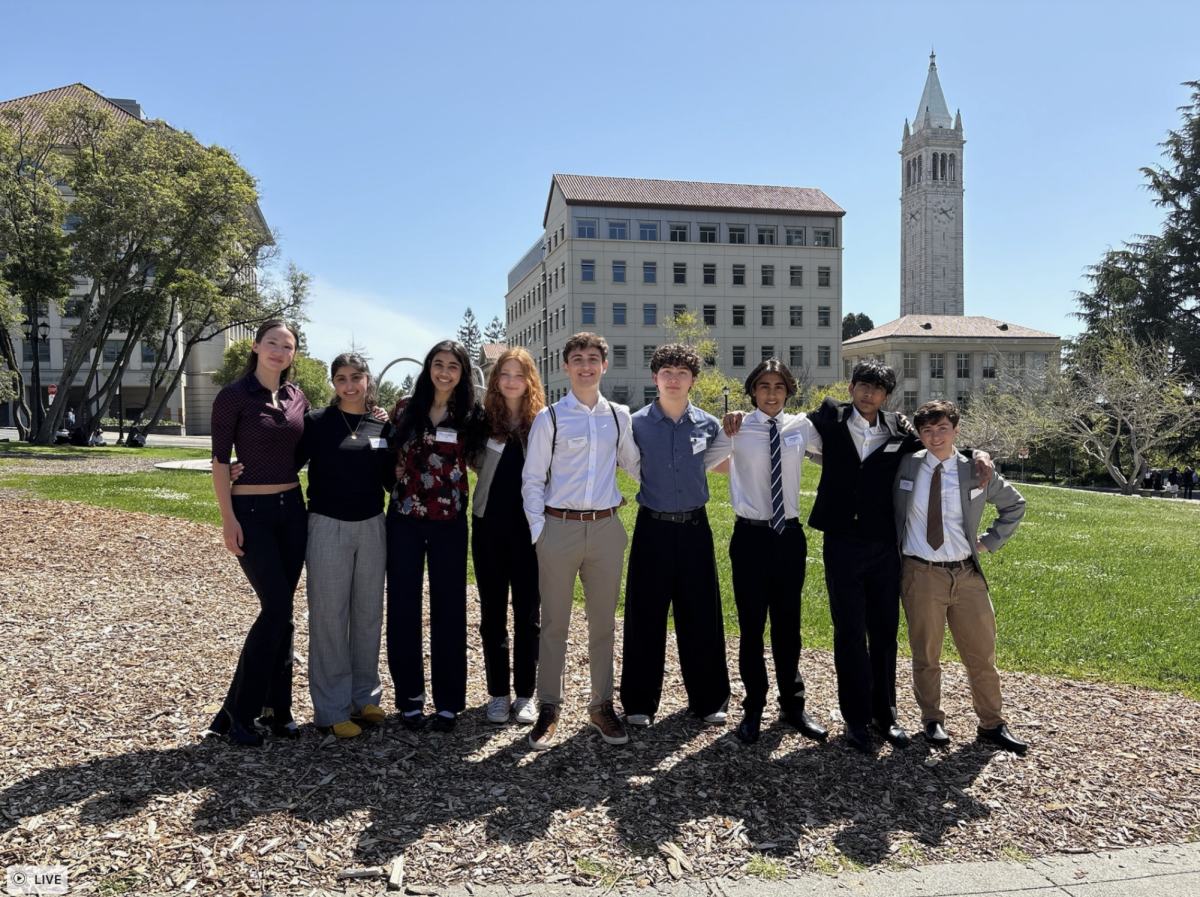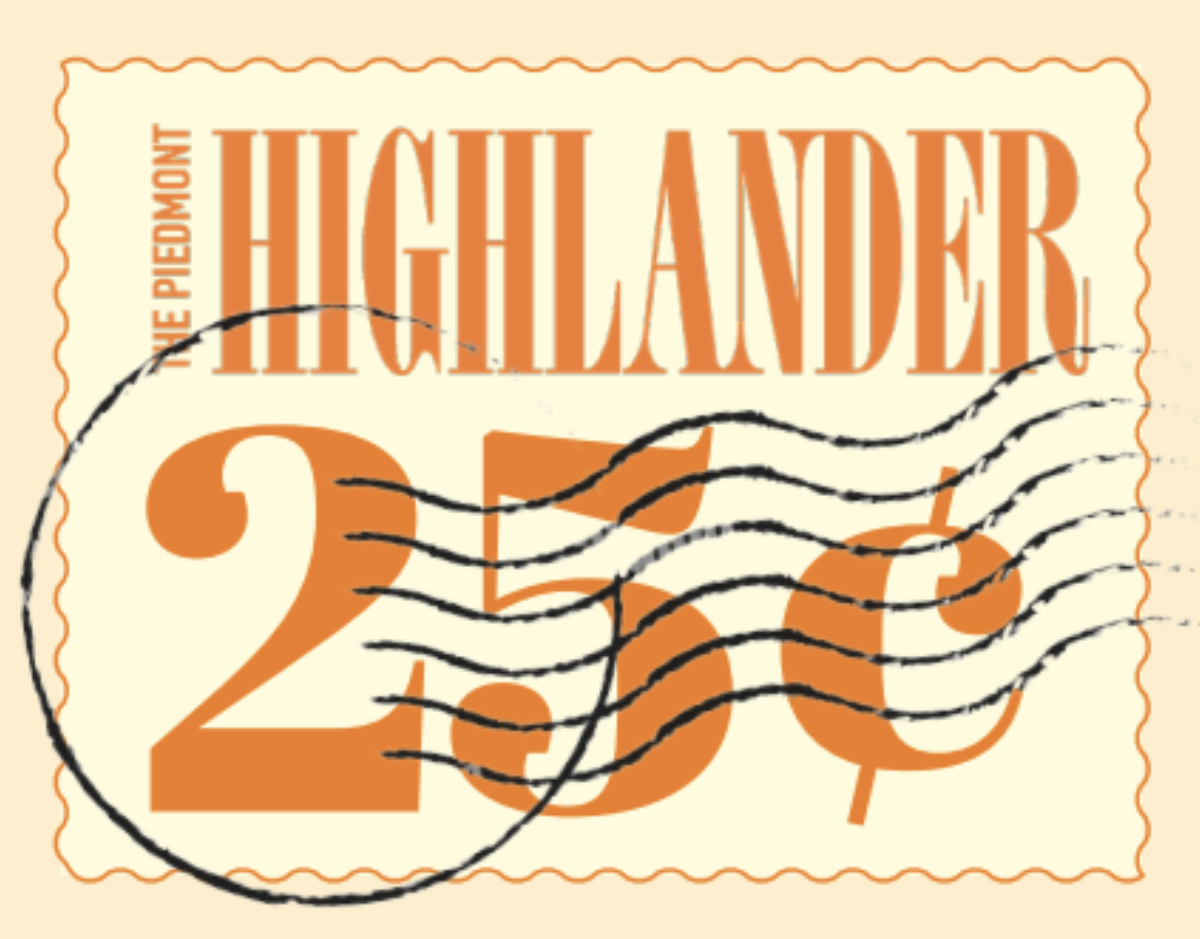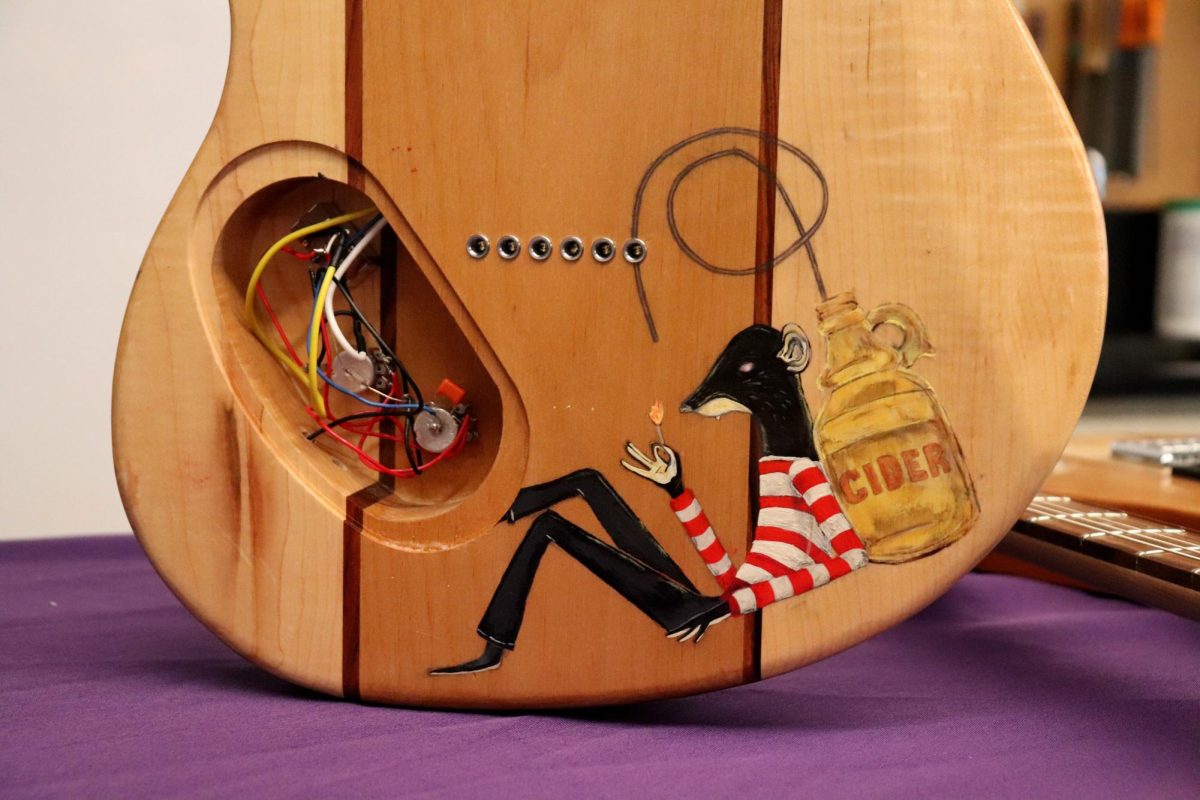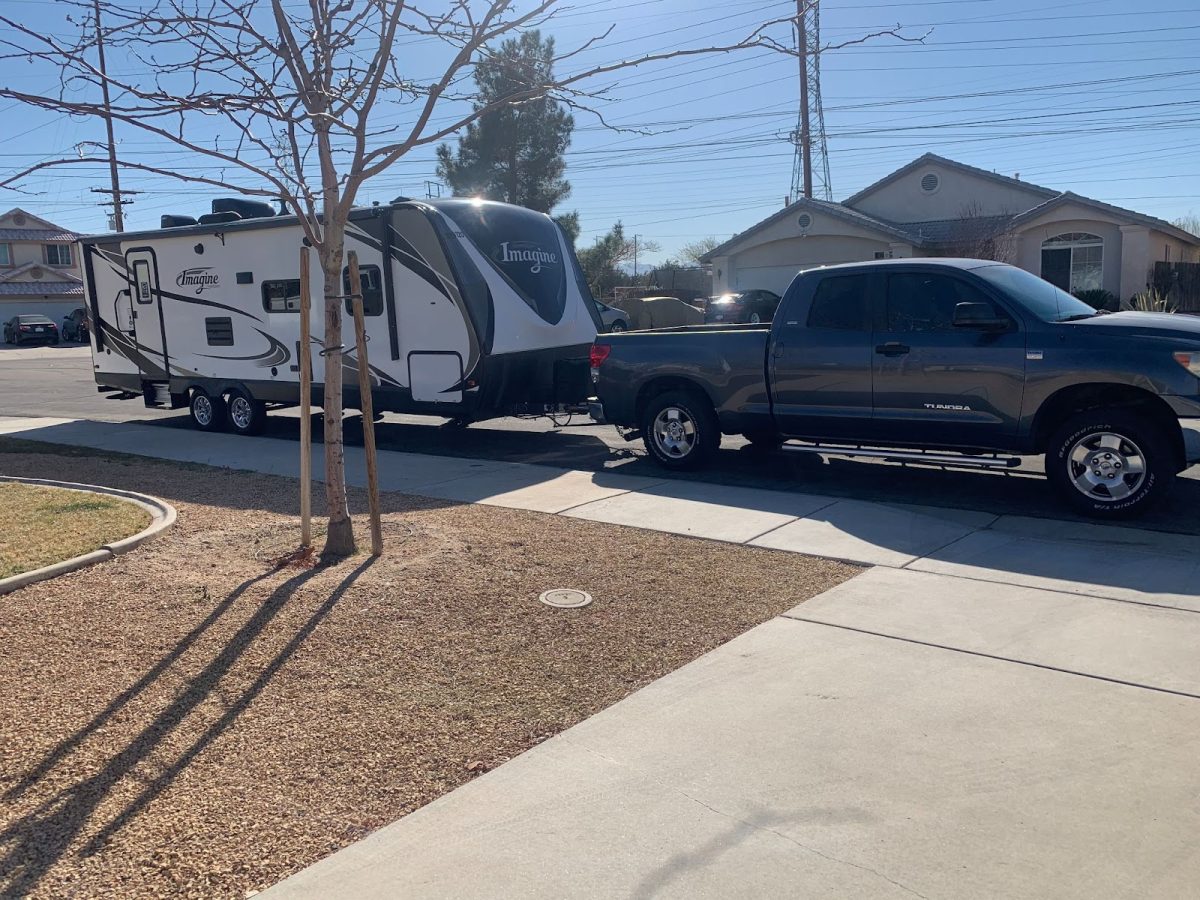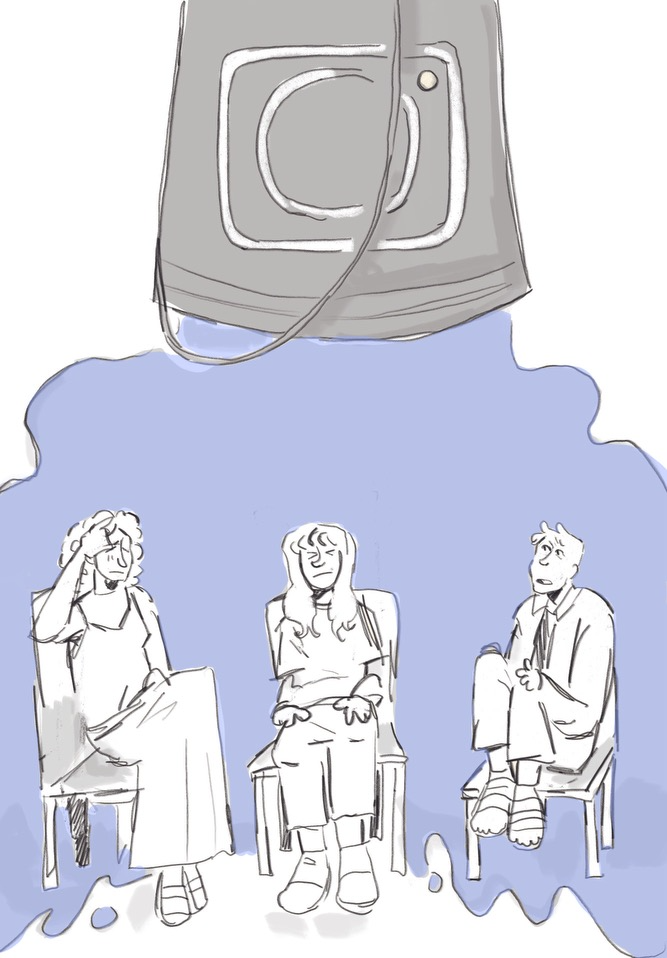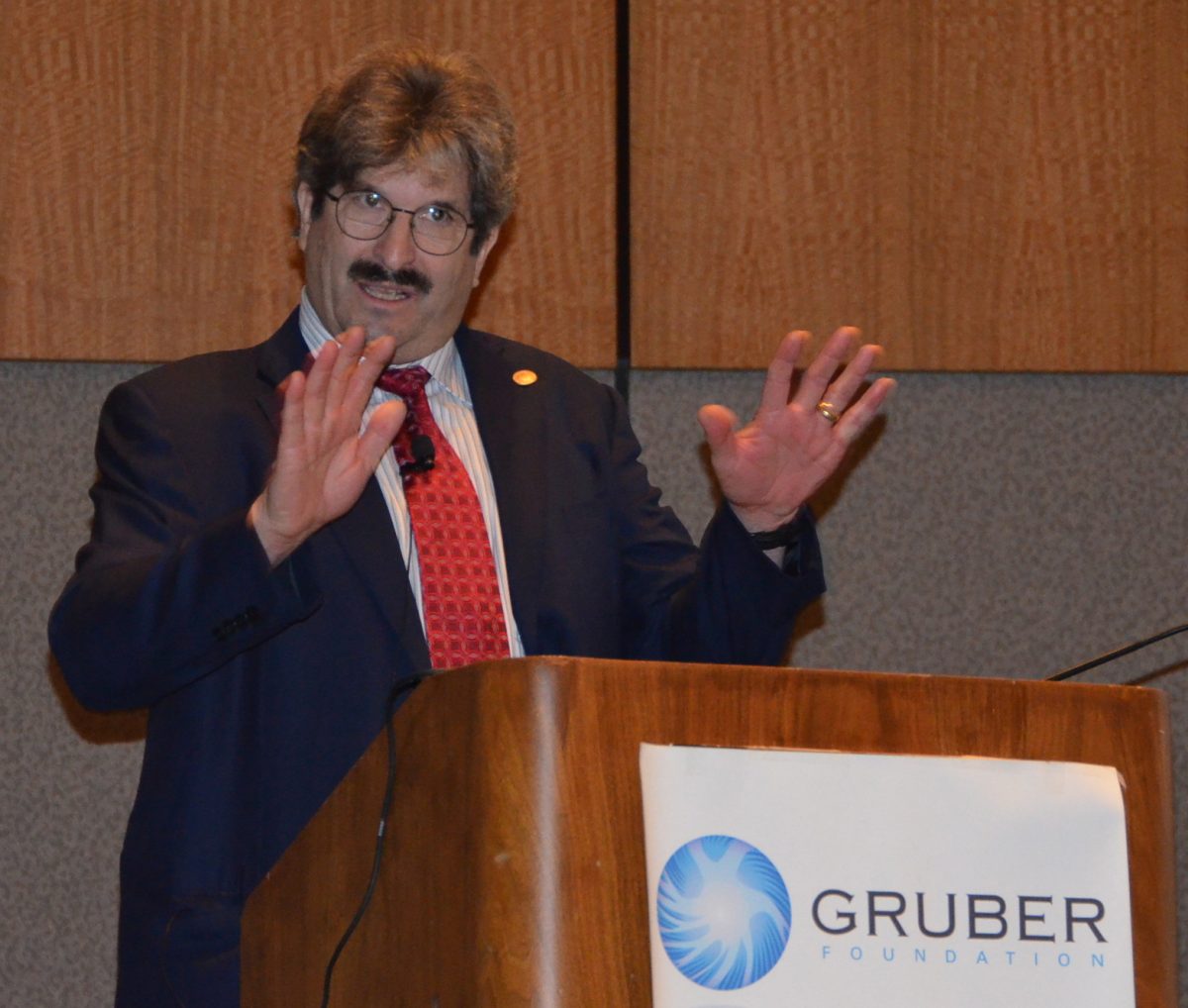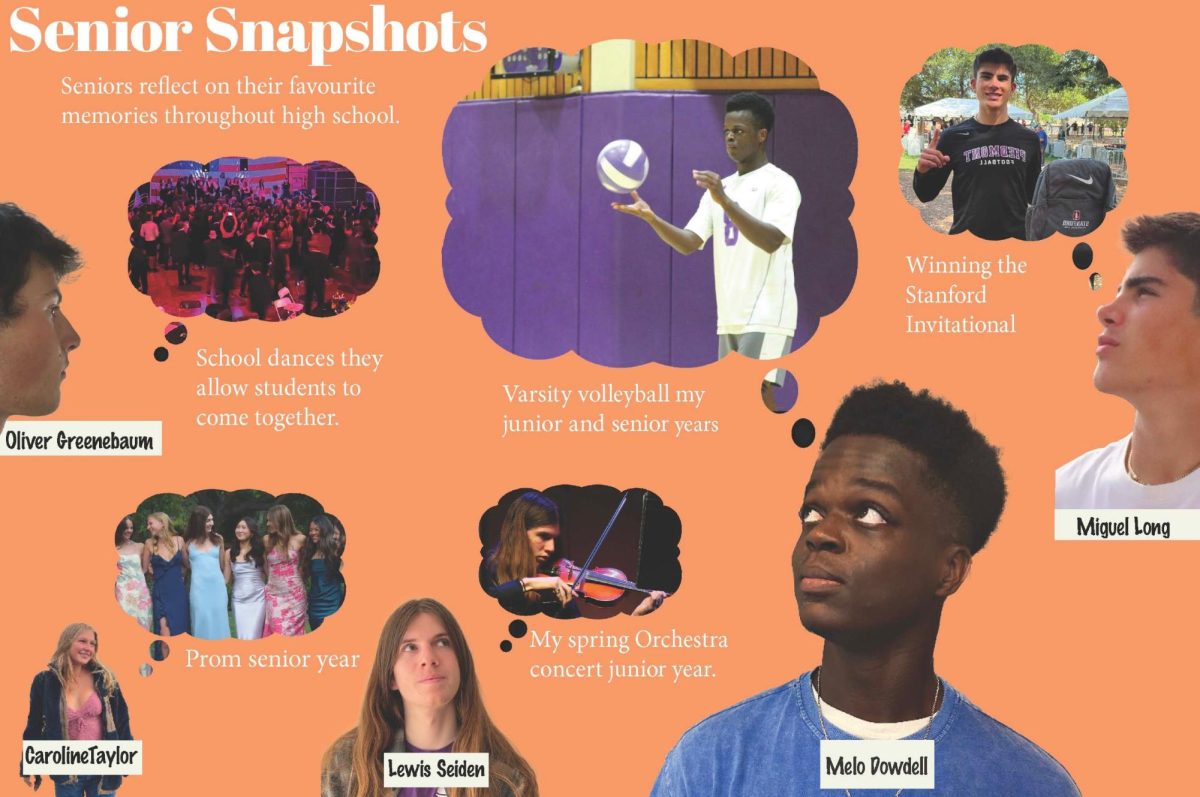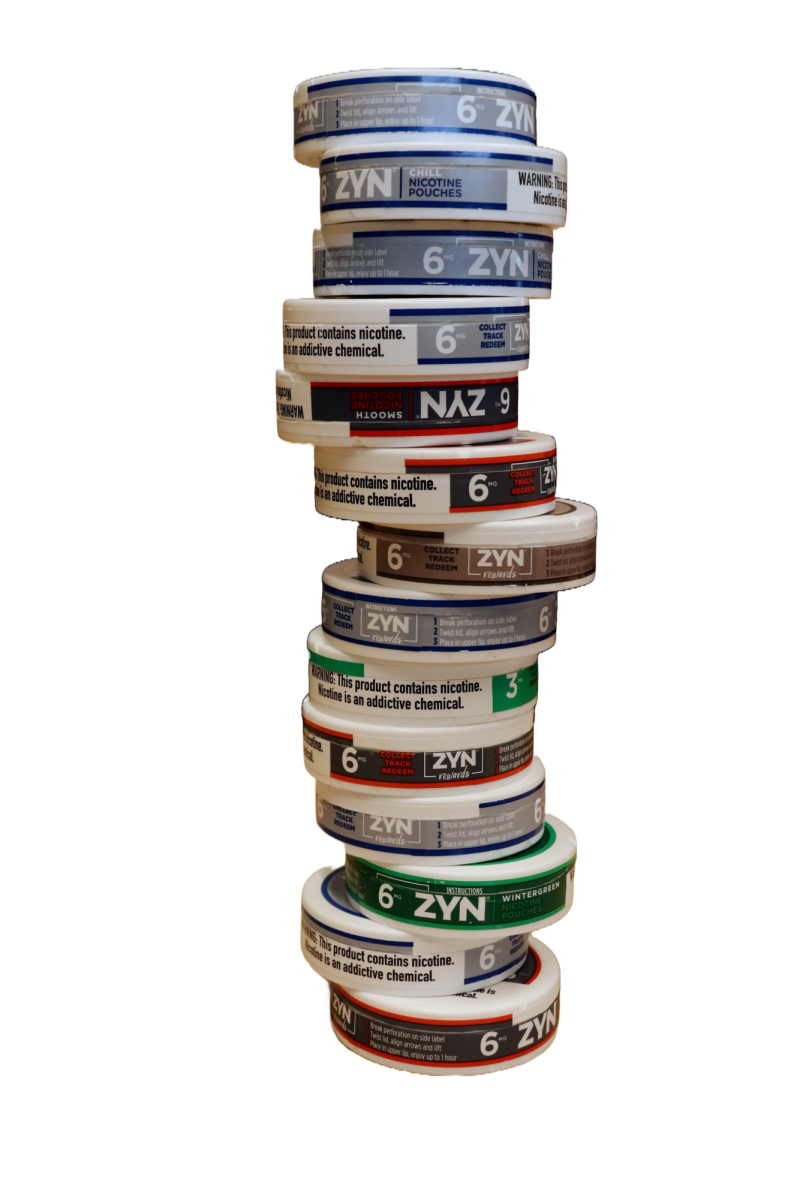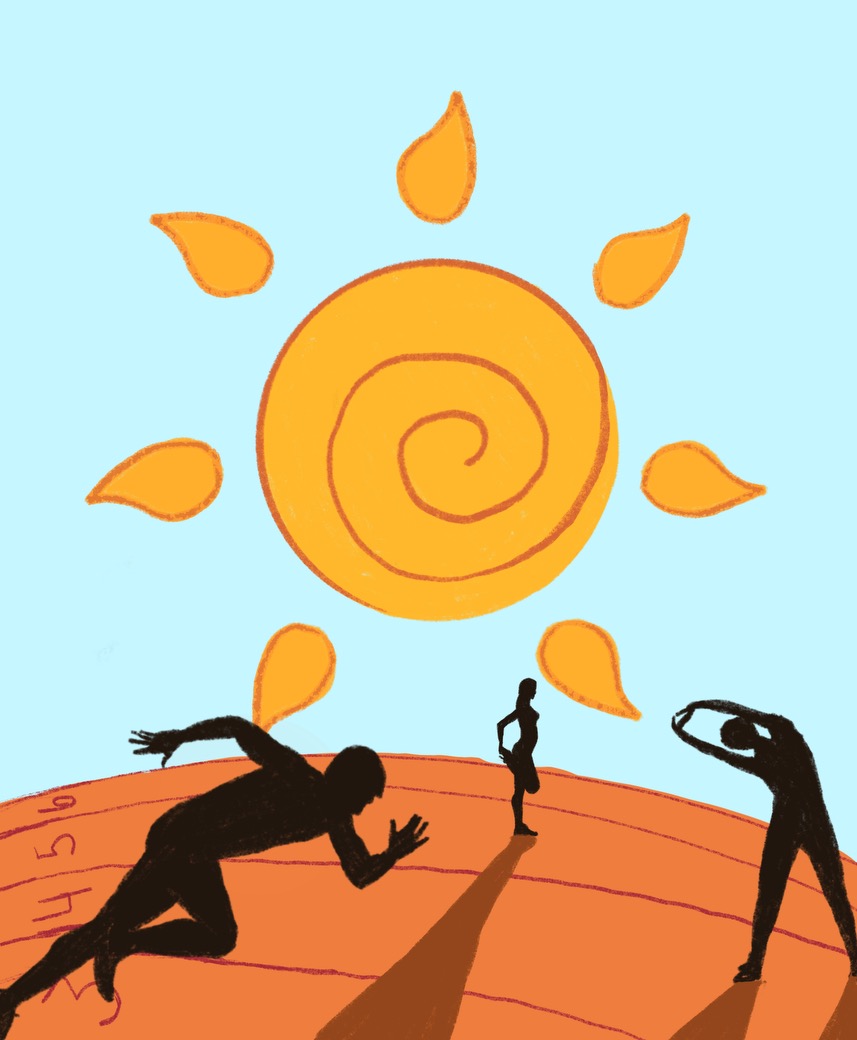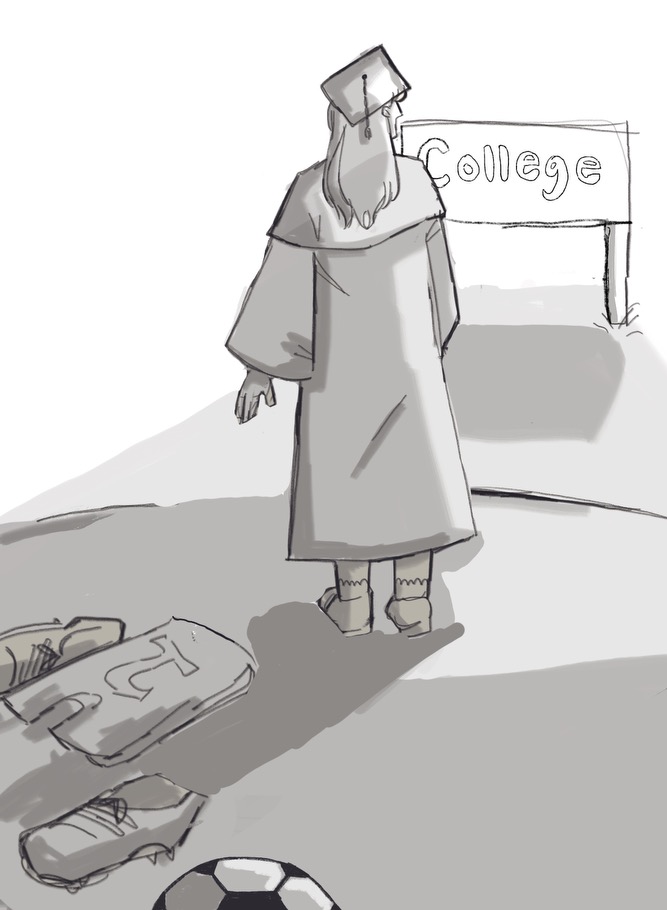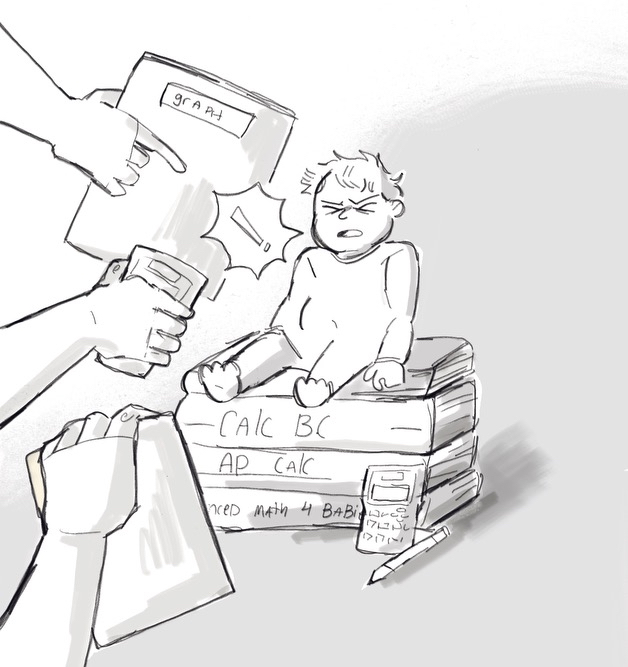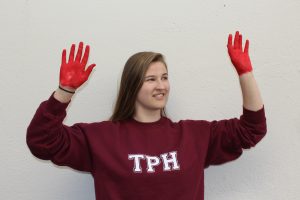 Red paint stains the straps of my backpack and the keys of my computer. My white phone case has turned a decisive pink. Much to my mother’s disapproval, I’ve gotten red paint on the roof of the car. But it will remain on my hands for 17 school days.
Red paint stains the straps of my backpack and the keys of my computer. My white phone case has turned a decisive pink. Much to my mother’s disapproval, I’ve gotten red paint on the roof of the car. But it will remain on my hands for 17 school days.
We all have a personal responsibility to speak out against racism and police brutality.
Red hands represent this personal responsibility. Maura Phillips and I came up with the idea of painting our hands red to raise awareness and lend a voice to those who are victims of police brutality, most notably Eric Garner and Michael Brown. We chose 17 days because Eric Garner was killed on July 17, and Michael Brown was killed on 8/9.
To Piedmont students, these court decisions may feel distant, with facts distorted by rioters and overly zealous reporters.
Ferguson is 2,051 miles from Piedmont, but the issues are prevalent in our own backyard, where Oakland has become a hotbed for protests since Oscar Grant was shot and killed by a BART police officer in 2009.
Both cases share the theme of racism and police brutality, two extremely complex issues. Yet we cannot allow the complexity of these cases and the opinions surrounding them to overshadow the significance.
Apathy may seem like a good solution to complex problems like racism and police brutality, but it’s not.
Apathy, or lack of interest and concern, only enlarges these problems because it allows extreme voices to dominate the conversations.
As a popular chant proclaims, white silence equals violence.
In just a few short years, we students will inherit the America that is currently plagued by issues of racism, government non-transparency and gun violence. It is our world, so we must take responsibility and make our voices heard.
When my parents went to Cal in the mid 80s, they joined the student body in demonstrating for 14 months in order to convince the UC system to divest in South Africa.
It worked. What’s more, once UC divested, companies throughout the nation and the world followed suit, and the boycott helped to end the apartheid regime.
Opponents might argue that the success of the Berkeley apartheid protests was an anomaly because many protests appear little more than troublemakers smashing windows and looting stores. Protests are frequently a noisy inconvenience, disorganized and lacking a coherent message.
However, when I joined a Berkeley march to protest the Ferguson and Eric Garner decisions, I was very impressed. Thousands of people marched two and a half miles through Berkeley, chanting all the way. Diners came out of the restaurants on University Avenue to cheer us on, and many of the cars we held up honked and waved in appreciation.
As long as the organizers and participants have a clear message, protests are democracy in action. Thousands of people storming Interstate 80 creates an extremely powerful message that becomes impossible to ignore for commuters and media alike.
My Berkeley protest was the first item on the news segment I heard on the radio driving to school the next morning, and I was proud to have helped make the statement.
Yet I hardly heard the word “Ferguson” or the name “Eric Garner” around Piedmont High School.
We need to be more involved in the world around us. Racism isn’t a black problem or a white problem. It’s an American problem.
As of a 2013 report by the Census Bureau, the average net worth of a black household in the US was $34,598 compared to $58,270 for the average white household. Inequality breeds crime and resentment, which hurt American society as a whole.
Furthermore, one million of the 2.3 million people currently incarcerated in the US are black, according to the NAACP. African-Americans make up only fourteen percent of the total US population.
Still, plenty of people deny that racism is a problem in America.
We cannot live in denial.
Hearing the helicopters covering nearby protests cannot be our closest connection to the movement against police brutality and racism within police forces and courtrooms.
We cannot be apathetic. We need to join the discussion and make our voices heard.
Democracy relies on informed citizens, and although most of us are not yet old enough to vote, it is our civic duty to find facts and form opinions. It’s time that we care.
